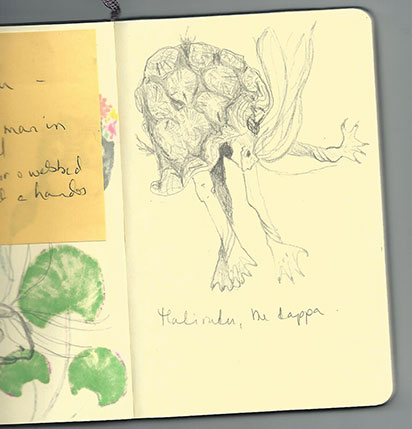I do, yes.
I’m an avid consumer of fiction in all its forms: audio books, ebooks, books, comics, films, occasionally even television. Since I started writing, I don’t have much time for TV or film but I continue to read. And listen.
Audio books are controversial. I know lots of people who wouldn’t consider listening to one and who assume – as I did when I started using them – that they are all badly abridged for easy consumption. It is true that I dont always listen very actively but that doesn’t mean that the the books are well produced. The problem with audio is that you tune it out when you need to so there are times when I miss bits. I’ve listened to audio books for years – when cleaning, cooking, showering, commuting, walking, waiting, travelling – but when I really want to pay attention, I get the paper version.
Well, that was before I came decided to read Jo Walton’s Among Others on my phone, came across the Humble Bundle’s e-book bundle, read Lauren Beukes’ Zoo City on a Sony Reader and requested a Kindle for my birthday. I now read on screen more than on paper. The benefit: I don’t need the bedside light on and an e-reader won’t get it’s pages all mushed up in my handbag. Drawbacks: I can’t easily (or legally) borrow digital books from my friends, and, of course, I don’t own these books. And it does doesn’t leave my bibliophile self anything to show off. Empty shelves all around. On the other hand, e-readers are handy for reading out loud too: I’m going to use my Kindle for my next Illicit Ink performance. (December 2nd, 20:00, the Bongo Club. Thank you for asking.)
Of course, I adore books as objects. Their weight, their smell. The different sounds when you flip through a new book – crisp and business-like – or an old one – soft and muted. I like having something in my hand, turning pages looking for nothing in particular, getting ideas and taking notes. Reference books have to be paper, and covered in sticky notes, my own personal index. There’s something particularly lovely about illustrated books. Illustrations look better on paper than on screen: I enjoyed reading Freak Angels on screen but will buy the books to enjoy them properly.
I don’t really care how people read (or consume fiction) as long as they do. When I grew up, we had a black and white television because my mother though colour removed what little creativity and imagination the moving image demanded of you. Words, without images, leave everything to your imagination. Scrawled black marks on a page, or words whispered in your ear, get your brain working, creating images and worlds, guessing what’s coming next.
Other people’s words make us a little richer when we share them.
